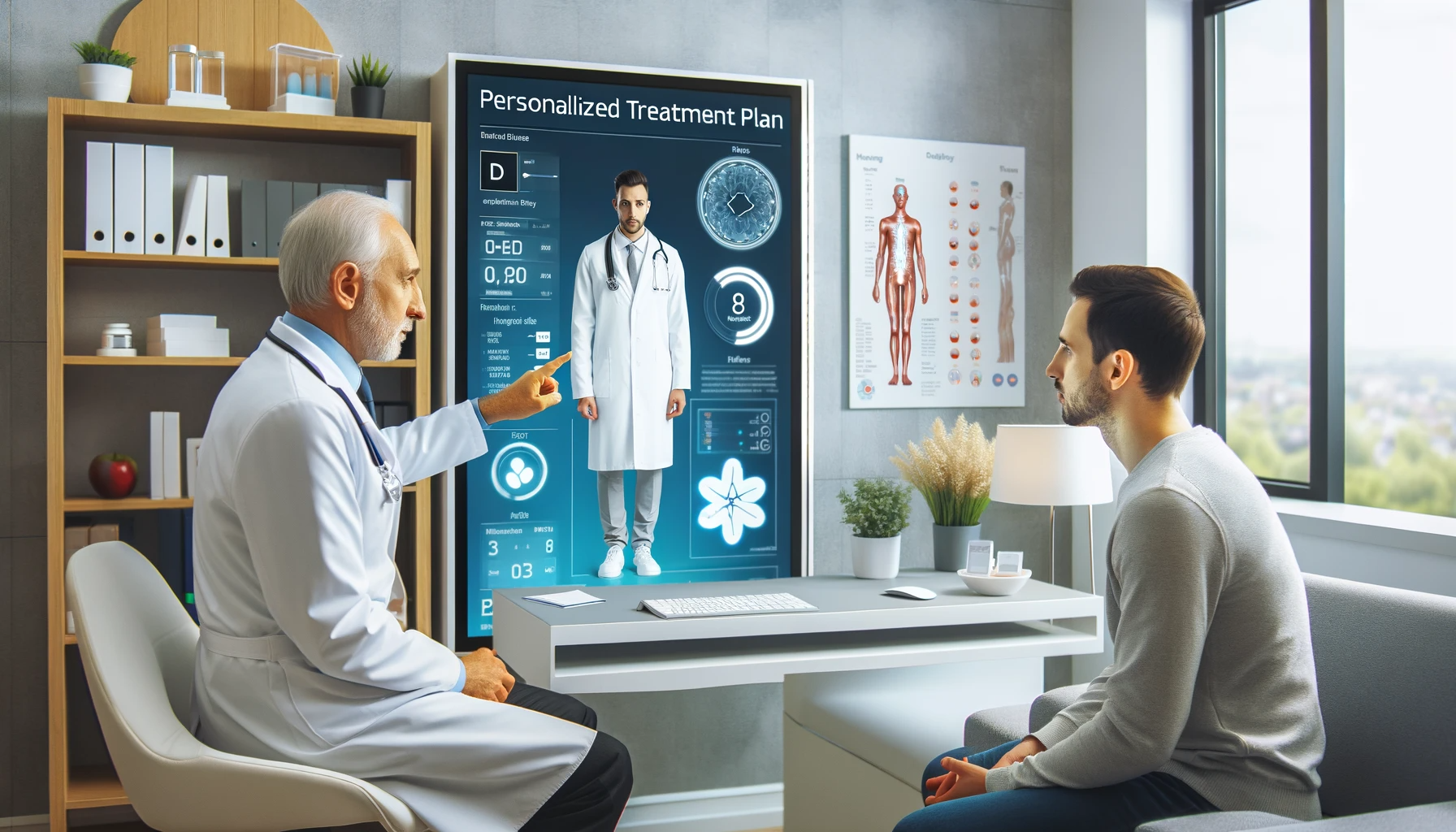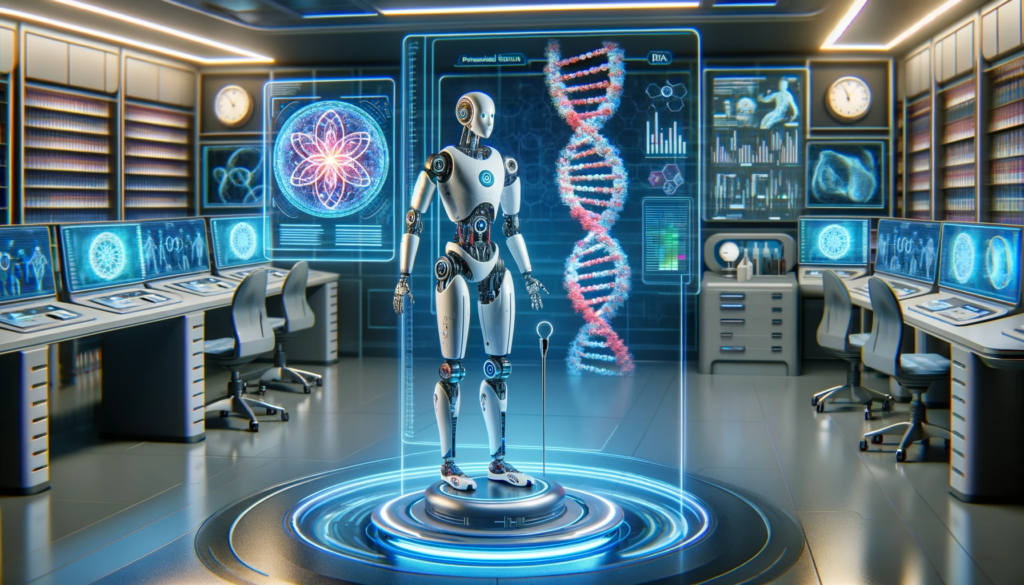Artificial Intelligence (AI) is rapidly transforming the landscape of healthcare. Among its many promising applications, one that stands out is its role in advancing personalized medicine. The traditional one-size-fits-all approach to healthcare is gradually giving way to tailored treatment plans designed to meet the unique needs of each patient. In this article, we will delve into the world of personalized medicine and explore how AI is leading the charge, potentially making personalized medicine the new norm in healthcare.
Understanding Personalized Medicine
Personalized medicine, also known as precision medicine, is an innovative approach to healthcare that considers individual differences in patients’ genes, environments, and lifestyles. Instead of adopting a blanket treatment strategy, personalized medicine seeks to provide patients with treatments and therapies tailored to their specific genetic makeup, the characteristics of their disease, and even their responses to various interventions.
The promise of personalized medicine is monumental. It aims to maximize treatment efficacy while minimizing adverse effects by selecting the most suitable therapies for individual patients. Rather than relying on trial and error, healthcare providers can leverage genetic data, biomarkers, and other factors to make informed decisions about treatment options.

AI’s Crucial Role in Personalized Medicine
While the concept of personalized medicine has been around for some time, the integration of AI has accelerated its progress. AI systems excel at processing vast amounts of data, identifying patterns, and generating insights at a scale and speed that surpasses human capabilities. This makes AI an ideal companion for personalized medicine.
AI algorithms can analyze genetic information, clinical records, and other patient data to identify specific biomarkers and genetic variations associated with diseases. These algorithms can then match this information with relevant treatment options, helping healthcare providers make more informed decisions about patient care.
Genomic Medicine and AI
One of the most prominent areas where AI is making a difference in personalized medicine is genomic medicine. Genomic data, which includes an individual’s complete set of genes, plays a pivotal role in understanding diseases at the molecular level. AI-driven genomic analysis can identify genetic mutations or variations that contribute to disease susceptibility or progression.
Tailored Treatment Plans
With AI’s assistance, healthcare providers can create tailored treatment plans that consider a patient’s genetic predisposition to specific conditions. For example, in oncology, AI can help identify genetic mutations that drive cancer growth and recommend targeted therapies designed to inhibit those specific mutations. This not only increases the chances of successful treatment but also reduces unnecessary side effects associated with broad-spectrum treatments.
Improved Diagnosis and Prognosis
AI also excels in image analysis and interpretation. In fields like radiology and pathology, AI-powered algorithms can assist in the early detection and accurate diagnosis of diseases. For instance, in medical imaging, AI can detect subtle abnormalities in X-rays, MRIs, and CT scans, aiding physicians in making more precise diagnoses. Moreover, AI can predict disease progression and prognosis based on individual patient data, helping doctors tailor treatment plans accordingly.
Challenges and Ethical Considerations
While the integration of AI in personalized medicine holds immense potential, it also raises challenges and ethical considerations. Patient privacy and data security are paramount concerns, as genomic data is sensitive and highly personal. Ensuring that AI algorithms are transparent, unbiased, and free from discrimination is another critical aspect that needs careful attention.
The Road Ahead
As AI continues to evolve and becomes more integrated into healthcare systems, the vision of personalized medicine becoming the norm is closer to reality than ever before. The benefits of tailoring treatments to individual patients, increasing treatment efficacy, and reducing adverse effects are driving forces in this transformation.

Conclusion
The marriage of AI and personalized medicine has the potential to revolutionize healthcare. As AI algorithms become more sophisticated and healthcare providers harness the power of genomic data, we are witnessing a shift towards treatments and therapies that are finely tuned to each patient’s unique biology. While challenges remain, the promise of improved patient outcomes and a more effective healthcare system makes the journey toward personalized medicine an exciting and hopeful one. In the not-so-distant future, we may indeed see personalized medicine becoming the new norm in healthcare, delivering a higher standard of care for all.
